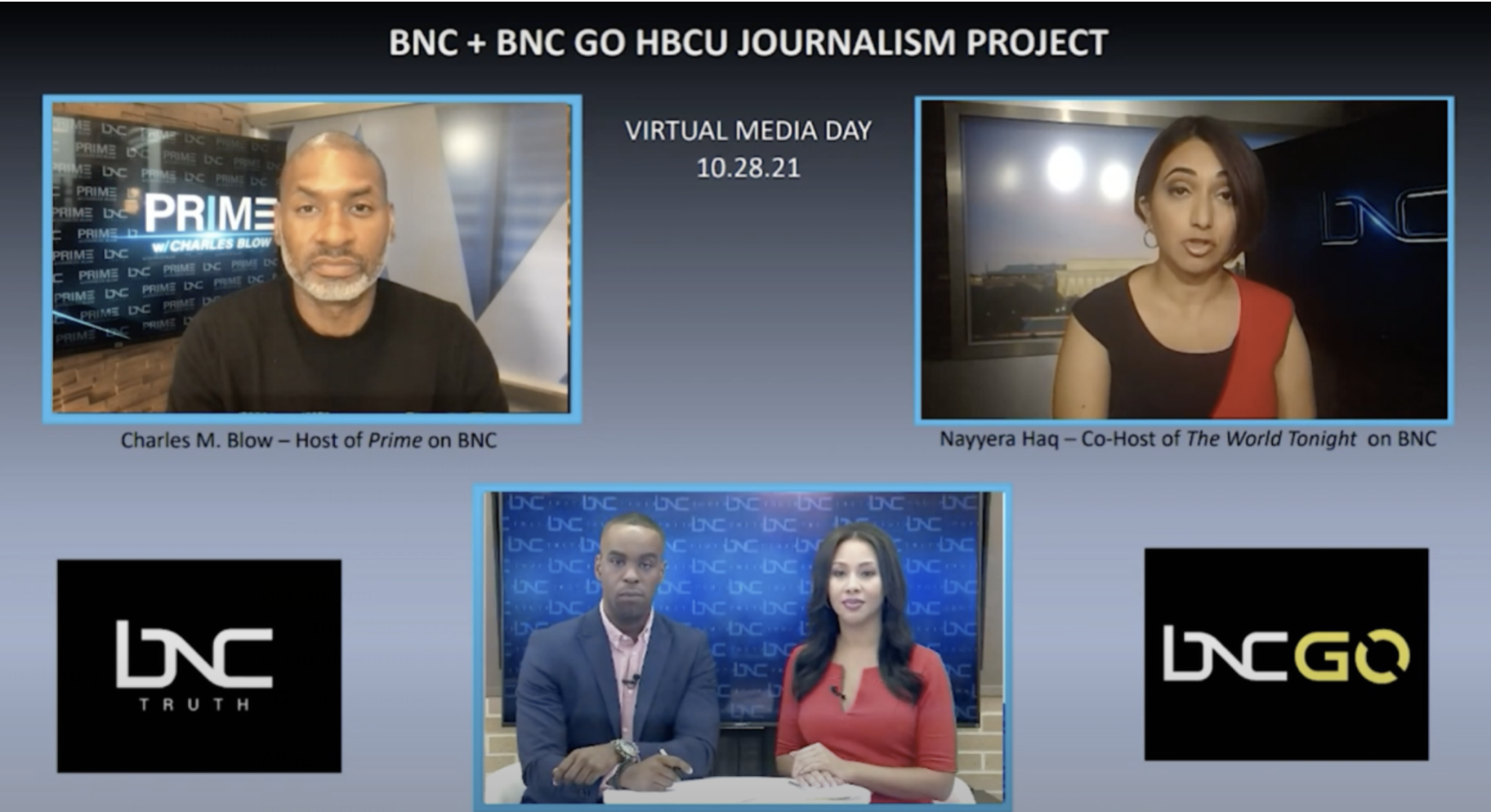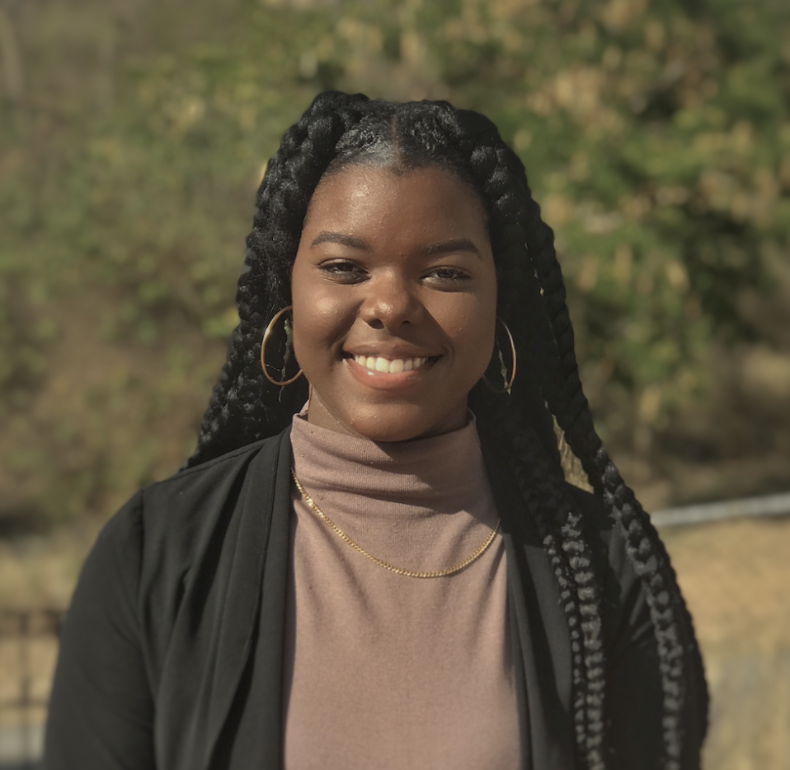
Key Questions Receive Honest Answers from The Black News Channel: Virtual Media Day Hosted for Outstanding Journalism Students from HBCUs
by George Francis
(STT, USVI-November 8, 2021)
Recent social climate changes and shifts in the way news is disseminated about people of color have led to the following questions. Is there a future for Black journalism in America and what influence do black journalists have upon the changing media landscape? While these questions reflect a specific ideology they may pose either philosophical or rhetorical stances.
…what influence do black journalists have upon the changing media landscape?
The statements surrounding the future of black journalism, however, have proven to be steadfast and unwavering. How so, might you ask? With the launch of the Black News Channel (BNC), the nation’s fastest-growing news network that caters to Black and brown demographics, we can undoubtedly say that there is indeed a future for black journalists who will continue to thrive and report real and authentic news. The start of this news network demonstrates that not only will BNC secure the future of black journalism, but they lay the foundation to change the media landscape for young aspiring journalists of color. A practical example is the special BNC + BNCGO HBCU Journalism Project.
Through this special project, a number of outstanding journalism students from HBCU’s across the nation were chosen to participate in a Virtual Media Day panel presentation geared to answer, what the future of black journalism means for journalists of color in America. Panelist and co-host of “The World Tonight” on BNC Nayyera Haq, lead the conversation and noted that
“representation matters but it’s not about the quota’s it’s about the lens you bring to the conversation. We’re also moving past the idea that the only people who can talk about or should talk about issues that affect communities of color are people of color. [Here at BNC], we’re doing it differently. We’re unpacking this idea that you don’t bring your experience to the table and that actually there are multiple angles to every story…all of those [angles] need to be presented through the lens of truth. So facts are facts. Our experiences matter. And that [I think] is going to fundamentally change the landscape of journalism for another generation.”
The existence of BNC is proof that there is a secure future for black journalism
Since its official launch in February 2020, BNC has provided a news ‘voice ‘that represents African Americans and other people of color in mainstream media and fosters political, economic, and social discourse. The existence of BNC is proof that there is a secure future for black journalism despite the setbacks of a global pandemic. In a press release announcing the appointment of, Princell Hair, president, and CEO of BNC expressed his excitement to return to a news network. “I am thrilled to return to daily newsgathering and compelling storytelling at the only 24-hour cable news channel aimed specifically at African Americans and other people of color, as the world responds to a pandemic, systemic racism, and an economic crisis, all of which disproportionately impact the Black audience.”
BNC is committed to building bridges of understanding through inclusion and equality with balanced and thoughtful coverage that illuminates and celebrates people of color. “More than 80% of BNC’s 350 plus employees are people of color and [BNC] has hired more than 250 people of color over the past 12 months and more than 90% of [BNC’s] on-air talent are also people of color,” says panelist and moderator Michelle Fisher. Not only taking into account diversity and inclusion at BNC, but the panel also weighed in on one of the student’s questions that focused on the practice of spreading accurate news and doing it through a lens of empowerment versus anger.
“More than 80% of BNC’s 350 plus employees are people of color
Panelist and host of “Prime” on BNC Charles Blow led this discussion and expressed his opinion that [journalists] should not approach their work from the perspective of empowerment vs. anger. He said:
“what I think we should be doing is dealing with presenting facts, I love what James Baldwin said about what he was doing in his work which was that he was bearing witness, I think that’s what journalism should be about. We are here to bear witness.”

This virtual media day panel discussion aligned with BNC’s goal to provide unbiased and unapologetic presentations on important questions about the future of the media landscape, relative to journalists of color. Culturally-specific content that is not presented anywhere else.is offered at BNC. Questions are answered and the future of black journalism is secure for aspiring journalists of color. BNC demonstrates its tagline of “Truth Illuminated.”




8 COMMENTS